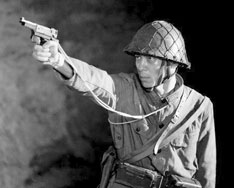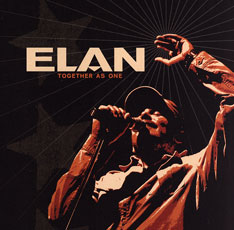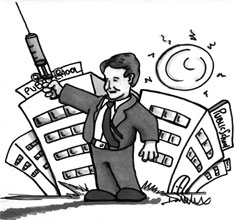By Sara Pintilie/reporter

Clint Eastwood’s Flags of Our Fathers was critically acclaimed, but ultimately failed at the box office.
Maybe it failed because of the hype surrounding this big budget film or its monster of a competitor The Departed, but the movie about the iconic WWII battle moment just got pushed aside.
The film’s being overlooked didn’t stop Eastwood from releasing yet another movie about the battle of Iwo Jima, this time from the Japanese point of view.
Letters from Iwo Jima is an intimate war drama telling the story of the ill-fated island from the Japanese standpoint.
Shot mostly in Japanese (the Americans speak English), Eastwood creates a vivid retelling on screen with enough heart to balance out the graphic perils of war.
The story is told through letters from two people—Gen. Tadamichi Kuribayashi and a soldier, Saigo—found decades later on the battle site.
Ken Watanabe (The Last Samurai, Batman Begins) portrays Kuribayashi, a worldly general freshly back from living a stint in America.
His contemporary ways of fighting a battle are shunned by his traditional subordinates, causing tension throughout the unit stationed on the island.
His only ally among the officers is Baron Nishi, a former Olympic athlete.
Saigo is a lowly soldier who admires Kuribayashi but hates every other aspect of the war into which he was drafted.
He writes his letters to his pregnant wife to pass the time before the Americans arrive.
For the first hour of this two-and-a-half-hour war epic, the film deals with the preparation for the Americans and the tension between the Japanese officers.
The movie also touches base with the emotions of the soldiers and the desperation of their situation—no mainland help … just the men on the island with limited supplies.
The second half is an exquisite display of the traumatic battle as the Americans land and fight their way to conquer the island of Iwo Jima.
The Japanese soldiers come to realize their inevitable fate and have to deal with the decision to either run and fight at a different post or die honorably by killing themselves.
Eastwood, with his sense of brooding suavity depicted in his movies Mystic River and Million Dollar Baby,centers the film more on the relationships among members of the Japanese Imperial army unit than on the war itself.
Watanabe is excellent as the general, and Saigo is played superbly by Kazunari Ninomiya.
Letters from Iwo Jima is one of the five best picture contenders in this year’s Oscars, alongside Little Miss Sunshine, Babel, The Queen and The Departed.
Though the film’s chances of winning are slim against the powerhouses, The Queen and The Departed, this film is well worth the ticket price to see it in theaters.
I give the film four and a half stars out of five.




























